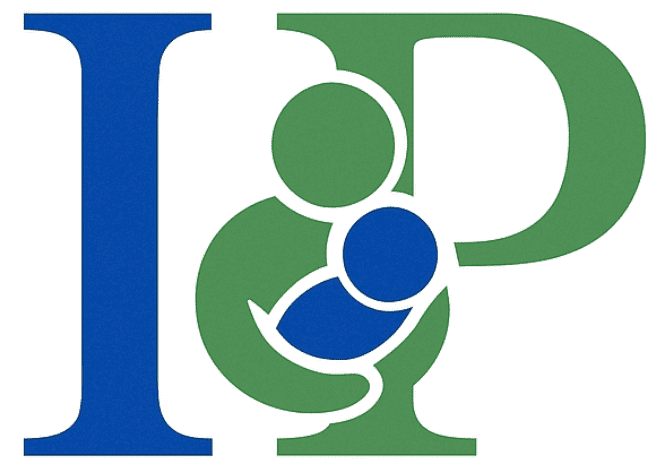Introduction
Pregnancy is a time of profound physical transformation, and I’ve personally seen how rapid changes in tastes and preferences can surprise even second-time moms. A sudden midnight desire for ice cream can feel irresistible, while the aroma of a once-favourite spicy dish may have you literally running away. These sudden cravings and aversions toward different types of food are completely normal in pregnancy, often initially noticed toward the end of the first trimester, and may later subside just as suddenly as their onset. From my work with expecting mothers, I’ve learned how important it is to trust your body — these pregnancy cravings and food aversions don’t always make rational sense, but they follow real biological signals.
Pregnancy cravings and food aversions must still be monitored because they can lead to nutritional deficiency if ignored. The good news is, it’s absolutely possible to gently handle pregnancy food cravings and aversions without stress. There are important things every new mother should know — food cravings, aversions, and pregnancy patterns naturally shift every few weeks, so staying flexible is key. I always remind women that their experience evolves; the same trigger or comfort today may not be the same tomorrow. Understanding that makes the journey far more empowering.
What are Pregnancy Food Cravings and Aversions?
Pregnant women often develop a deep craving for certain food items, sometimes with an equally intense and almost inexplicable dislike for other types of food — this is what we call a food aversion. It can show up as a feeling of becoming nauseous just by tasting or even smelling something. I’ve had clients who felt a sudden desire to eat one very particular dish, while just the smell or texture or flavour of another would instantly lead to strong aversions.
This experience is completely normal in pregnancy, and it’s the body’s unique way of communicating what it wants or wants to avoid. These shifts don’t follow logic — they’re protective biological responses. What comforts you today might repulse you tomorrow, and that’s still normal.
What are Food Cravings?
A food craving is a sudden urge or strong desire to eat a very particular kind of food or cuisine, often something you previously found unusual. During pregnancy, many women experience intense food cravings for items they normally disliked or couldn’t tolerate before. At the same time, they may also experience aversions to certain smells or tastes, which can shift suddenly and unexpectedly.
These cravings can appear throughout the pregnancy period, and they are very common and completely normal. The body can demand what it needs instinctively, even if it doesn’t make logical sense — which is why cravings during pregnancy don’t always reflect regular eating habits.

Causes of Food Cravings and Aversions During Pregnancy
Hormonal changes play a crucial role in triggering mood shifts and food cravings in women during pregnancy. The body’s dietary needs and nutritional energy requirements rise to sustain both the mother and the baby. This is why caffeine and alcohol are often avoided, as the environment and surroundings are also an important aspect that determines a person’s food preferences. In fact, calcium deficiency may even trigger a craving for milk, dairy products, or ice cream — a pattern I’ve personally seen in countless prenatal cases.
These reactions aren’t random — they are adaptive signals from the body. Whether it’s a nutrient demand, hormonal influence, or sensory trigger, pregnancy cravings are the body’s way of protecting and preparing. Understanding this is the first step toward managing them intelligently rather than fighting them.
1. Hormonal Changes
Human chorionic gonadotropin (HCG) levels spike in pregnancy and can directly affect the smell, taste, and hormone-driven appetite response.
2. Morning Sickness
Food aversion is closely associated with morning sickness, where pregnant women may dislike certain types of food and instinctively begin avoiding them completely.
3. Increased Saliva
Pregnancy can produce excess saliva, altering taste — some food may taste metallic, causing aversion to develop.
4. Nutrition Signal
The body may signal missing nutrients it need by developing a liking for certain types of food during pregnancy.
5. Protecting Your Baby
The body may insist on avoiding types of food that seem harmful to the baby in the womb — a protective reason for aversion.

Common Food Aversions and Cravings
Each woman is unique, and food aversions and cravings vary from person to person. During pregnancy, many women develop strong cravings for common comfort foods like ice cream, chocolate, cookies, fruits, vegetables, or sweets. From my own observation, these aren’t just random desires — they often arise from emotional or nutritional needs, blending comfort with biology.
Pregnant women may experience food aversions
Pregnant women often experience food aversions, showing a dislike toward certain types of food. Common aversions include meat, eggs, spicy food, tea, coffee, garlic, and onions. This change is the body’s natural way of avoiding foods that might be harder to digest or cause discomfort during pregnancy.
When Do Food Cravings and Aversion Start During Pregnancy?
Usually, women experience a peak in food cravings and aversions around the end of the first trimester, and these can become more severe in the second trimester. They often subside during the last stages of pregnancy, though for some, they can even serve as an initial sign of early pregnancy changes.

Complications of Food Cravings and Aversions During Pregnancy
While healthy pregnancy cravings and aversions are normal, they can sometimes lead to certain complications if left unchecked — especially when nutrition balance is affected or food choices become too restrictive.
Craving for Non-Food Items
Some pregnant women develop a craving for items that are not edible, like chalk, clay, soap, charcoal, ice, or dirt. Such cravings might indicate an underlying medical condition that needs immediate intervention.
Under nutrition
Food aversions can result in avoiding many healthy food items during pregnancy, resulting in undernutrition that may affect the growth of the baby.
Weight Loss
Some women may lose weight during pregnancy due to an inability to eat adequate food, often linked to pregnancy-related food aversions.
How to Manage Pregnancy Food Cravings and Aversions?
Dealing with pregnancy food cravings and aversions can be a challenging task, especially when your body keeps sending mixed signals. From my own pregnancy experience and helping clients, I learned how important it is to truly listen to your body and understand what it’s asking for — not just emotionally, but nutritionally. The surprising part is, once you accept that these things are normal, it becomes much easier to manage and deal with unpredictable pregnancy cravings and food aversions in a calm and strategic way.
Eat Small Meals Throughout the Day
I always split my meal timings so I would never feel extremely hungry, which helped me avoid sudden intake of unhealthy food.
Limit the Food You Crave
It’s ok to eat the food you crave, but I would try to limit the quantity instead of restricting it completely.
Keep Yourself Occupied
Staying involved in light activities during pregnancy helped me keep my mind occupied and get rid of random food cravings, because an idle body often triggers the urge to eat more, resulting in overeating.
Look for Healthy Alternatives
If I crave to eat something sweet, I’d look for a healthy alternative like fruits, dry fruits, or even gentle smoothies.
Reduce Your Sugar Intake
I made it a habit to reduce sugar intake during pregnancy to help manage sugar levels throughout the pregnancy.
Take Your Prenatals
A food aversion can be the result of nutritional deficiency, so I would never skip my prenatal supplements during pregnancy.

Emotional Causes of Food Cravings and Aversions During Pregnancy
Mood changes are very common among pregnant women because of hormonal imbalances, especially in young would-be mothers who go through sudden sentimental shifts — from bouts of happiness, sadness, or even anger. In many cases, excessive stress can lead them to indulge in food items like chocolates, cakes, or comfort foods. That’s why doctors often recommend that mothers avoid overeating and instead seek emotional support and care from their loved ones, or find a healthy alternative.
Treatment for Food Cravings and Aversions During Pregnancy
The best ways to deal with food cravings and prevent excessive weight gain are to eat healthy, fresh, and not just high-calorie items, but those with real nutritional value, without being harmful to the baby. It’s always wise to consult your doctor, stick to the diet chart he/she prescribes, and enjoy a hassle-free pregnancy — while still allowing yourself to indulge in sweets or treats just enough to satisfy cravings. Some women even report strange cravings like dirt or clay, which may signal a nutrient deficiency and should be immediately reported.
Nausea and Aversion to Specific Food During the First Trimester of Pregnancy
If you don’t feel like eating during the first trimester, it’s a tricky roller coaster ride of emotional and physical challenges due to body changes, and it’s completely normal while living through this phase. There are numerous ways this affects sleeping patterns, body structure, and causes sudden food aversion with nausea, which are common features most pregnant women are likely to face, especially appetite loss or morning sickness, aversion to vegetables or certain foods, which happens in most cases and can remain throughout the pregnancy.
What Is Food Aversion During Pregnancy?
During pregnancy, many women go through emotional and physical trials, including food aversion, which means suddenly not liking a specific food they were eating regularly before getting pregnant. They may even feel repulsive toward the smell, experience nausea, and avoid it completely, which becomes a real challenge to maintain healthy eating. Almost everyone expecting a baby may face both strong cravings and an urge to avoid a specific dish or ingredient.
Why Does Food Aversion Happen During Pregnancy?
Due to intense hormonal changes in a woman’s body at the beginning of pregnancy, the uterus expands upward and outward to accommodate the growing fetus, and multiple hormones like progesterone relax the muscles and loosen the system. This slows how the food and waste propel through the digestive tract, causing sluggish digestion and constipation. This overall slowing track and loosening of muscles allows stomach acid to pass into the esophagus and throat, leading to heartburn or reflux, which can worsen morning sickness. Meanwhile, HCG time doubles, reaching its peak around the 6th–8th week, and all these hormones directly affect the appetite.
When Do Food Aversions Start in Pregnancy?
Food aversions often start right when pregnancy begins and usually reach their peak around 6 to 8 weeks, when you may feel intense nausea at the mere smell of certain foods and even vomit. This situation is completely normal and nothing to worry about.
When Do Pregnancy Food Aversions Stop?
Food aversions generally tend to become less once the first trimester ends, but in some cases, they can stay throughout the entire pregnancy. In the latter scenario, the situation still gets better with time, as long as you take extra care in eating healthy.
What Is the Effect of Food Aversion?
Food aversion can lead to low appetite, which may be harmful for the baby if the current situation also includes vomiting and a reduction in weight. This often causes a deficiency of nutrients and water in the body due to irregular or low fluid intake during pregnancy. If not managed, this deficiency can increase the risk of constipation, a common problem many pregnant women face.
What Are the Common Food Aversions During Pregnancy?
It’s different for everyone, but mostly foods with a strong smell like garlic, onion, egg, meat, or spicy food trigger aversion — even milk, tea, or coffee. It’s possible that you simply don’t feel like eating them during pregnancy, but may crave them later, as changes over time can affect your appetite, making it difficult to eat certain foods temporarily.
How to Deal with Food Aversions During Pregnancy?
Food aversions can be a challenge when you need to eat a favorite but healthy food that’s required to gain proper weight and avoid losing strength. Focus on intake of healthy, nutritious meals, which is vital in this stage of life. The best method is to consume the food you’re disliking by mixing it with other items — for example, if you have trouble drinking plain milk, simply add flavor, or do the same with veggies by blending them. In most cases, food aversion naturally reduces after the first trimester, but there’s a slight possibility it continues throughout the pregnancy or until delivery. For an indefinite time, it may only subside once the baby is delivered, so treat it as a temporary phase of the journey to becoming a mother, and stay enjoying, healthy, and hydrated.
Preventing Food Aversions and Cravings During Pregnancy
It’s not always possible to fully prevent food aversion or food cravings in pregnancy, but staying active, eating a balanced diet, and taking necessary supplements can help avoid complications caused by food aversion or intense cravings during pregnancy.
Dealing with Pregnancy Cravings and Aversions: A Balanced Approach Is Key
Food aversions and cravings are common early signs of pregnancy and are usually not a cause for concern. However, it’s important to ensure and prevent the baby does not miss essential nutrients. When cravings or aversions become overwhelming or unusual, consult a doctor , as it may signal an underlying issue. The key is approaching both cravings and aversions with a careful, balanced approach to maintain a healthy, wholesome diet throughout pregnancy.
Conclusion
Food aversions and cravings are a completely natural part of pregnancy and are mostly driven by hormonal changes in the body. While they can sometimes feel overwhelming, they are temporary and manageable with the right awareness, balanced nutrition, emotional support, and smart eating habits. The key is to listen to your body without compromising the baby’s nutritional needs — and involve your doctor when something feels unusual or excessive.
Frequently Asked Questions (FAQs)
1. Is food aversion normal during early pregnancy?
Yes, food aversions are very common during the first trimester due to hormonal changes and morning sickness.
2. Can food aversion harm the baby?
Not immediately — but if it leads to severe weight loss, dehydration, or nutrient deficiency, you should consult your doctor.
3. When do food aversions usually go away?
Most women notice improvement after the first trimester, but in some cases, aversions may continue throughout pregnancy.
4. What should I do if I can’t eat the healthy foods I previously liked?
Try mixing or blending them into other meals — for example, adding flavor to milk or blending vegetables into soups or smoothies.
5. Are cravings and aversions related to the gender of the baby?
No scientific evidence supports that. They are mainly hormonal and vary from woman to woman.
6. Should I worry if I crave non-food items like clay or dirt?
Yes — this may indicate nutrient deficiency (a condition called pica). Inform your doctor immediately.
7. Can staying active reduce aversions and cravings?
Yes, light physical activity, hydration, stress control, and proper supplements help maintain better appetite balance.

